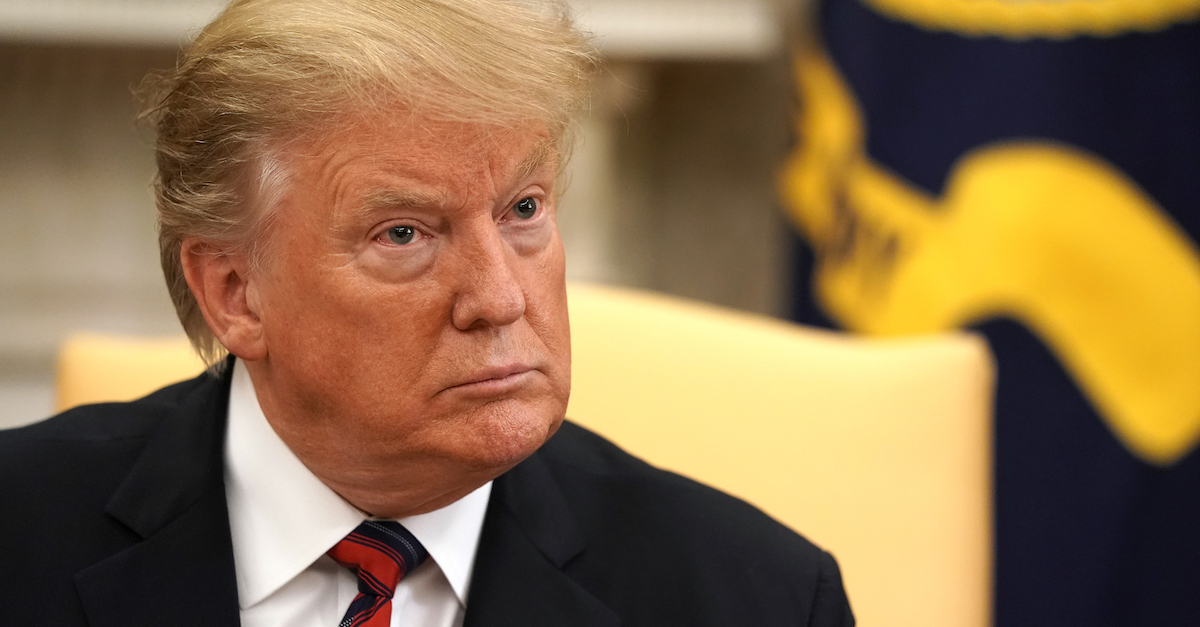
President Donald Trump is having a weekend Twitter fit over a little social experiment carried out by NYU professor Ian Bremmer. On Sunday, Bremmer tweeted a fake quote attributable to Trump. The tweet, which has since been deleted, said:
Trump in Tokyo: Kim Jong Un is smarter and would make a better president than Sleepy Joe Biden.
Bremmer is a respected foreign policy expert. The statement, later called by Bremmer himself an “objectively a completely ludicrous quote,” didn’t seem all that shocking coming from the president.
My tweet yesterday about Trump preferring Kim Jong Un to Biden as President was meant in jest. The President correctly quoted me as saying it was a “completely ludicrous” statement. I should have been clearer. My apologies.
— ian bremmer (@ianbremmer) May 27, 2019
After Bremmer responded to commenters confirming that the quote was, indeed, fabricated, he explained that the post had been an exercise in proving that people blindly support their own political positions. “That’s the point,” he tweeted – a reality that apparently stung no one more than the president himself.
Instead of encouraging the public to be more vigilant in this proclaimed age of “fake news,” Trump called for changes to the law.
.@ianbremmer now admits that he MADE UP “a completely ludicrous quote,” attributing it to me. This is what’s going on in the age of Fake News. People think they can say anything and get away with it. Really, the libel laws should be changed to hold Fake News Media accountable!
— Donald J. Trump (@realDonaldTrump) May 27, 2019
But what would it mean to hold a person or organization “accountable” for a post like Bremmer’s? Trump, a notorious purveyor of misinformation, might be surprised to learn.
In its current form, libel (the written form of defamation), is a tort committed when a person spreads a negative falsehood about another that causes the victim negative financial consequences. Defamation is one of several exceptions to speech otherwise protected by the First Amendment; the underlying base logic is that as a society, we believe speech should only be illegal if it causes unjust harm to someone else.
Even putting aside the special requirements for victims who are public figures like Trump, the Bremmer tweet couldn’t be defamatory; it didn’t cause Trump any harm. For many, the quote fell right in line with something they’d have expected Trump to say. To his supporters, it wasn’t negative – but rather, Trump simply being the Trump they respect and support. To his haters, it was also just another day of Trump being Trump. That was Bremmer’s point – and the reaction from the public and from Trump himself proved him right. Whether one thinks it was a point worth making is another story — but it’s hard to argue with Bremmer’s accuracy.
I’m confused. Yes it’s objectively ludicrous, and yes it’s still plausible because our president is a lunatic. So why try to trick people who might believe something that you admit is plausible and provide ammo for the favorite “fake news” talking point? Am I missing something?
— Selina Nicole (@selinanicole) May 26, 2019
You say so many horrible, racist, misogynistic, and idiotic things daily. It is weird someone had to make something up instead of using one of your quotes.
— Tony Posnanski (@tonyposnanski) May 27, 2019
“People think they can say anything and get away with it”
You mean like lying about the President of the United States being born in Kenya…pic.twitter.com/aqMlfUMmPi
— Ryan Hill (@RyanHillMI) May 27, 2019
For Bremmer’s tweet to incur liability as Trump has demanded, defamation law would have to undergo a total overhaul. And I sure hope that the president’s new libel law plan includes hiring more judges. If we revised defamation laws to include liability for false but totally on-brand statements about someone, defamation lawsuits could be won by the million. Without the legal limitation that defamation require a negative falsehood causing financial damage, libel and slander become nothing more than government prohibition of all lies, regardless of context or ramification. Saying anything untrue about anyone – whether intentionally or accidentally, whether harmful or helpful – would be legally actionable. He’s not looking to “open up” libel laws. He’s looking to destroy them altogether.
The suggestion that Americans could and should use the legal system to sue every time someone says something false about them is ridiculous in itself; that the proposal originates from Trump is downright bizarre. From misstating his own educational, professional, and financial resume to standing by “alternative facts,” few people have as well-documented a history of lying than Trump. If defamation laws were “opened up” in the way he suggests, Trump would need to park himself permanently in the defendant’s seat.
[Image via Chip Somodevilla/Getty Images]
This is an opinion piece. The views expressed in this article are those of just the author.